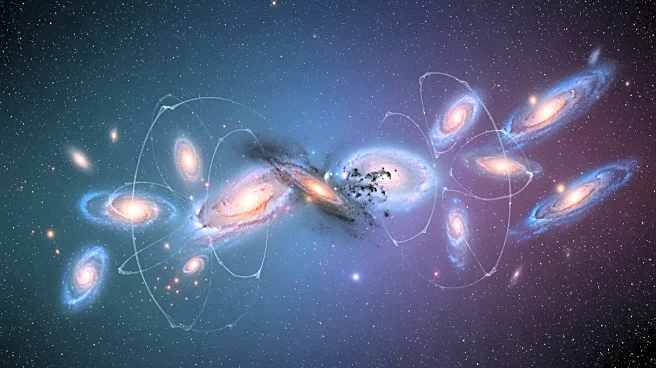What's Happening?
An international research team from the Center for Applied Space Technology and Microgravity at the University of Bremen and the Transylvanian University of Brașov has proposed a new explanation for the universe's
accelerated expansion. Traditionally, this expansion has been attributed to dark energy, a mysterious force added to the equations of general relativity. However, the researchers suggest that the expansion can be explained without dark energy by extending general relativity with Finsler gravity, which offers a more accurate modeling of gravitational forces. Their calculations show that the Finsler-Friedmann equations predict accelerated expansion in a vacuum without additional assumptions.
Why It's Important?
This research is crucial as it challenges the prevailing dark energy theory, which has been a cornerstone of cosmological models. By providing an alternative explanation based on a generalized spacetime geometry, the study opens new avenues for understanding the laws of nature in the cosmos. If validated, this approach could reshape our understanding of cosmic expansion and reduce reliance on the dark energy concept, potentially leading to more accurate models of the universe's evolution.
What's Next?
Further research and validation are needed to confirm the findings. The study suggests that the new geometry could offer insights into the fundamental forces governing the universe. Researchers may focus on refining the Finsler gravity model and exploring its implications for other cosmological phenomena.
Beyond the Headlines
The study highlights the importance of questioning established theories and exploring alternative models in physics. It underscores the dynamic nature of scientific inquiry and the potential for groundbreaking discoveries that challenge conventional wisdom.










